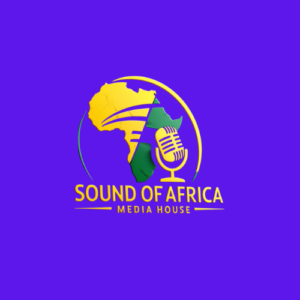Edwin Naidu
“Let’s go to work now, I’m ready!”
Those were the initial words to the media by Sidi Ould Tah, the Mauritanian President-elect of the African Development Bank Group at the Bank’s Annual Meetings held in Abidjan, Côte d’Ivoire on Thursday.
Tah was elected by the Bank’s Board of Governors, comprising Finance and Economy Ministers or Central Bank Governors of the Bank Group’s 81 regional and non-regional member countries. The board is the highest decision-making authority for the Bank Group.
The results were announced by Nialé Kaba, Minister of Planning and Development for Côte d’Ivoire, and Chairman of the Board of Governors of the Bank Group.
The other candidates in the election were: Amadou Hott (Senegal), Samuel Maimbo (Zambia), Mahamat Abbas Tolli (Chad) and Bajabulile Swazi Tshabalala (South Africa).
But it was the former Minister of Economic Affairs and Finance of Mauritania, Tah, who has held senior roles in multilateral institutions and has led crisis response, financial reform, and innovative resource mobilisation for Africa, won at the ballot.
Tah, who was also the former president and Prime Minister of Mauritania between 2006 and 2008, will head the AfDB, the largest development finance institution on the African continent, with a shareholder capital of approximately 318 billion US dollars.
Regional members (African countries) account for approximately 60 per cent of the voting power in the AfDB; approximately 40 per cent of the voting power comprises non-regional (i.e., non-African) members. The winning candidate had to get at least 50.01% of both the regional and non-regional votes.
Tah has more than 35 years of experience in African and international finance. He served as president of the Arab Bank for Economic Development in Africa (BADEA) for 10 years, from 2015, where he led a comprehensive transformation that quadrupled the bank’s balance sheet, secured a AAA rating, and positioned it among the top-rated development banks focused on Africa.
He will take office on September 1, 2025, for a five-year term, following the end of the second term of the current President, Dr. Akinwumi Adesina.
The election of a new president comes at a crucial time in the Bank Group’s six decades of existence. Africa has remained resilient despite climate shocks, economic disruptions, and a shifting geopolitical landscape; however, it needs to move faster to avoid falling behind in delivering on the African Union’s Agenda 2063 and the Sustainable Development Goals, as outlined in the Bank Group’s High 5s.
A female has never headed the Bank since its inception in 1964, and this moment called for a definitive break with such a one-sided tradition, which would have been a groundbreaking move had Dlamini, the only woman candidate, prevailed.
The South African was the second-in-charge at the Bank, placing her at the centre of continuing and building on the agenda already set in motion under the outgoing President Adesina.
Thus, presenting a lobby point that Tshabalala would preserve institutional memory and continuity. South Africa’s President Cyril Ramaphosa also stated that it was time for a woman to lead the bank. However, patriarchy continues to prevail, as evidenced by the 2025 Annual Meetings of the African Development Bank Group, which took place from May 26 to 30 in Abidjan, Côte d’Ivoire, under the theme “Making Africa’s Capital Work Better for Africa’s Development.”
The African Development Bank Group comprises three entities: the African Development Bank, the African Development Fund and the Nigeria Trust Fund. Its shareholder countries include 54 African countries or regional member countries, as well as 27 non-African countries or non-regional member countries.
In a statement, Dr. Samuel Munzele Maimbo, the Zambian candidate, congratulated Tah on his successful election as the President-elect of the African Development Bank Group.
“I entered this race driven by love and deep concern for our continent and offered a vision for Africa’s future. Today, the Governors have chosen the leader they believe will best deliver the vision of the Africa we want at this pivotal moment.
“My profound gratitude goes to all the governments, private sector partners, and young people who supported this campaign.
The work for Africa’s development and prosperity continues, and I remain committed to our shared goal of building a thriving continent.” © Higher Education Media





